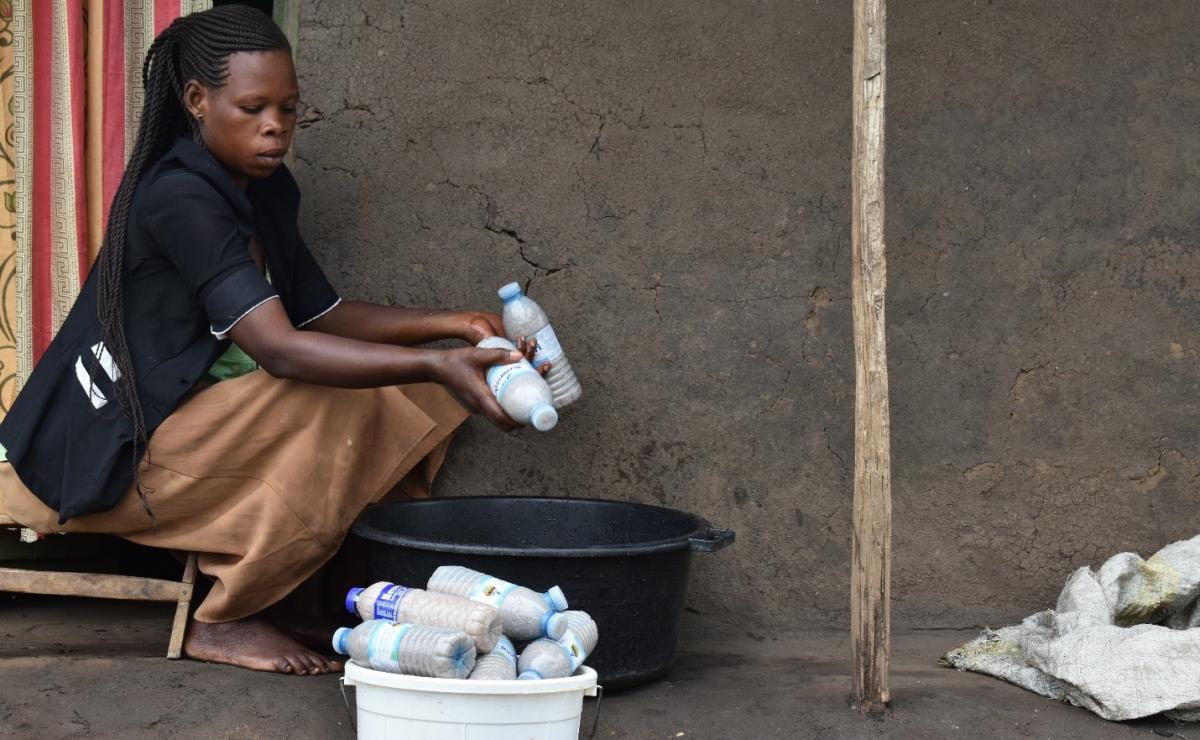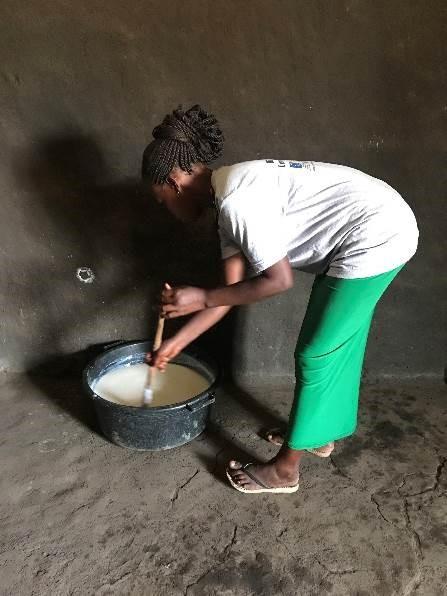From fetching firewood to fermenting porridge; Business support gets refugee mother out of the woods

Digging, fetching water and firewood are routine household chores in most African settings. For Anny, a 25-year-old Congolese refugee, they were her only source of income. With no other means, the single mother had to traverse the forests in the night’s wee hours to make ends meet.
Anny crossed Lake Albert, the natural boundary between the Democratic Republic of Congo (DRC) and Uganda, into Western Uganda in March 2018 with her four children. Settled in the Kyangwali refugee settlement, she could hardly feed her children two meals a day with the meagre food rations. The children, in return, resorted to stealing food from the neighbours and risked mob justice if the owners caught them.
“I decided to start fetching and selling water and firewood to other people in the settlement and host communities. This work was not easy, because I needed to fetch five jerrycans of water to raise just Shs1,000 ($0.28) a day,” Anny said. This could hardly help provide family needs, especially food.
“It was risky since we had to wake up at night to fetch water before the lines at the boreholes grew too long. Collecting firewood was even more dangerous, since the forest reserve had restricted access, and was highly guarded.”, she recounts.
In addition to exposing her to beatings and rape, Anny crossed thick bushes harbouring thieves, wild animals, and injury at night to collect firewood.
“My 10-year-old child and I would also get odd jobs like digging people’s gardens for as long as six hours a day to earn less than a dollar, “she reminisces.

Turning point
The turning point came in January 2020, when an LWF caseworker guided her to apply for support under the Reconnecting Lives, Vision and Empowerment (ReLiVE) project funded by the Bureau of Population, Refugees, and Migration (PRM). With funding from PRM, LWF supports vulnerable people and families with limited social support structures and income-generating opportunities with training suited for their needs and cash grant assistance to start a business. Among 400 other women at risk, Anny received Shs400,000 (about $108) as startup capital for her porridge business in April 2020. To boost her business, LWF supported her with a second cash grant in December.
To empower her economically and ensure self-sustenance for a dignified life, the single mother was trained on business skills, like customer care, management and proper hygiene.
After the training, Anny chose to revive her bottled fermented porridge business; before fleeing for safety from DRC, she had been in the porridge business.
Now, she sells porridge made locally from maize, fermented sorghum and millet. “I knew it had less competition compared to other businesses [in the settlement],” Anny speaks with confidence, after assessing the local market demands.
With the business skills Anny gained during the training, she has managed to market her porridge business and make it popular in the settlement. Everybody in the village knows her porridge is good; “People come looking for me. I also target to sell during food distribution time” she adds.
With the start-up capital, Anny’s business has managed to break through despite the financial effects of the COVID-19 pandemic. “I can make a weekly profit of Shs40,000 (about $10.81), and can provide basic needs for myself and the children with ease,” she states, “I have also hired two plots of land where I plant food for my family and sell the surplus”.
The cash assistance has not only benefitted Anny and her family, but it has also positively impacted the whole community; she employs two causal labourers to work in her garden as she concentrates on her business.

